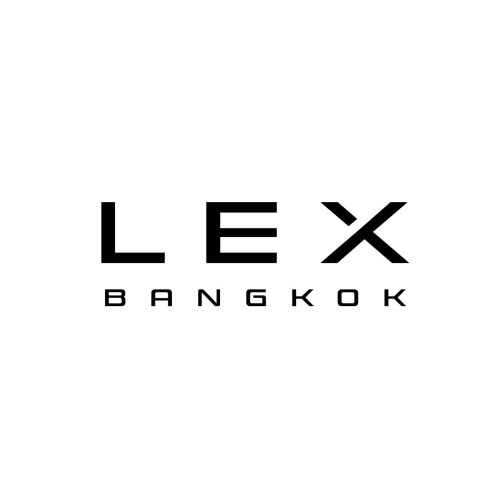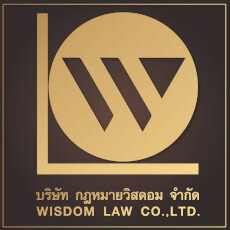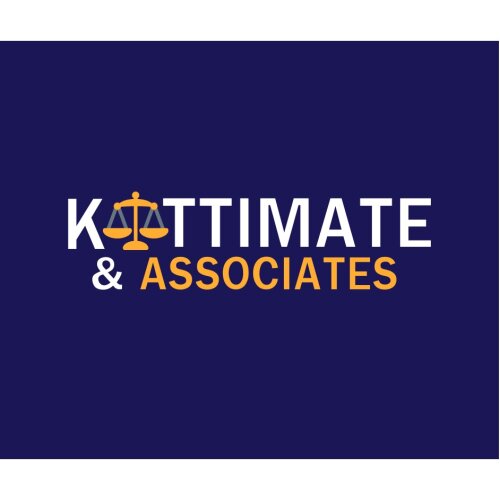Best Fintech Lawyers in Bangkok
Share your needs with us, get contacted by law firms.
Free. Takes 2 min.
List of the best lawyers in Bangkok, Thailand
Legal guides written by Mahanakorn Partners Group Co., Ltd:
- Thailand Strengthens Anti-Money Laundering Laws with New Amendments
- Recent Updates to Thailand’s Long-Term Resident (LTR) Visa and SMART Visa Programs
- Managing Risks in Public-Private Partnership Projects
Thailand Fintech Legal Articles
Browse our 1 legal article about Fintech in Thailand written by expert lawyers.
- Navigating the Legal Landscape of Digital Payments in Thailand
- The rise of digital payments in Thailand reflects the nation’s broader embrace of digital transformation and financial inclusion. From mobile wallets to QR code transactions, digital payment platforms have reshaped how individuals and businesses handle financial transactions. However, these developments also bring about a host of legal and regulatory challenges. ... Read more →
About Fintech Law in Bangkok, Thailand:
Fintech, short for financial technology, refers to the use of technology in the financial sector to provide innovative financial services. In Bangkok, Thailand, Fintech has been rapidly growing and transforming the way businesses and consumers engage in financial transactions. With this rapid growth comes the need for legal guidance to navigate the complex regulatory landscape.
Why You May Need a Lawyer:
There are various situations where individuals or organizations may require legal assistance in the field of Fintech. This can include regulatory compliance issues, contract disputes, intellectual property protection, data privacy concerns, and more. A lawyer with expertise in Fintech law can help ensure that your business operations are legally sound and compliant with local regulations.
Local Laws Overview:
In Bangkok, Thailand, there are several key aspects of local laws that are particularly relevant to Fintech. These include regulations related to electronic transactions, data protection, payment systems, crowdfunding, peer-to-peer lending, and digital currencies. It is important to be aware of these laws and regulations to avoid any legal complications in your Fintech activities.
Frequently Asked Questions:
1. What are the main regulatory bodies overseeing Fintech in Bangkok, Thailand?
The main regulatory bodies overseeing Fintech in Bangkok, Thailand include the Bank of Thailand, the Securities and Exchange Commission, and the Office of the Insurance Commission.
2. Do I need a license to operate a Fintech business in Bangkok, Thailand?
Yes, certain types of Fintech businesses may require licenses from regulatory authorities in Bangkok, Thailand. It is important to consult with a lawyer to determine the specific licensing requirements for your business.
3. What are the data protection laws that apply to Fintech companies in Bangkok, Thailand?
Fintech companies in Bangkok, Thailand are subject to the Personal Data Protection Act, which governs the collection, use, and disclosure of personal data. It is important to ensure compliance with these laws to protect the privacy of your customers.
4. How can a lawyer help me navigate regulatory compliance in Fintech?
A lawyer with expertise in Fintech law can help you understand the regulatory requirements applicable to your business, assist with licensing applications, draft legal documents, and provide ongoing advice on compliance matters.
5. What are the risks of operating a Fintech business without legal guidance?
Operating a Fintech business without legal guidance can expose you to various risks, including regulatory fines, lawsuits, reputational damage, and loss of business opportunities. It is important to seek legal advice to mitigate these risks.
6. How can a lawyer help me protect my intellectual property in the Fintech industry?
A lawyer can help you identify and protect your intellectual property rights, including trademarks, patents, and copyrights. They can also assist with drafting legal agreements to ensure that your intellectual property is properly safeguarded.
7. What are the key considerations when entering into partnerships or collaborations in the Fintech industry?
Entering into partnerships or collaborations in the Fintech industry can involve complex legal issues, such as joint venture agreements, revenue-sharing arrangements, and intellectual property rights. A lawyer can help you navigate these considerations and protect your interests.
8. How can I ensure compliance with anti-money laundering regulations in my Fintech business?
Anti-money laundering regulations are a critical aspect of Fintech compliance, as they help prevent financial crimes such as money laundering and terrorist financing. A lawyer can help you develop and implement an effective anti-money laundering program to meet regulatory requirements.
9. What are the legal implications of using blockchain technology in the Fintech industry?
Using blockchain technology in the Fintech industry raises legal implications related to data privacy, security, smart contracts, and regulatory compliance. It is important to seek legal advice to ensure that your blockchain initiatives comply with relevant laws and regulations.
10. How can I protect my customers' data in my Fintech business?
Protecting your customers' data is crucial in the Fintech industry to maintain trust and compliance with data protection laws. A lawyer can help you develop data security policies, implement encryption measures, and respond to data breaches in a timely and compliant manner.
Additional Resources:
For additional resources and information on Fintech in Bangkok, Thailand, you can refer to the Bank of Thailand, the Securities and Exchange Commission, the Office of the Insurance Commission, and the Ministry of Digital Economy and Society. These governmental bodies provide valuable insights and guidance on regulatory matters affecting the Fintech industry in Thailand.
Next Steps:
If you require legal assistance in the field of Fintech in Bangkok, Thailand, it is recommended to consult with a lawyer who specializes in Fintech law. They can help assess your legal needs, provide tailored advice, and guide you through the complex legal landscape of the Fintech industry. By seeking legal counsel, you can ensure that your Fintech activities comply with local laws and regulations, protect your interests, and mitigate legal risks effectively.
Lawzana helps you find the best lawyers and law firms in Bangkok through a curated and pre-screened list of qualified legal professionals. Our platform offers rankings and detailed profiles of attorneys and law firms, allowing you to compare based on practice areas, including Fintech, experience, and client feedback.
Each profile includes a description of the firm's areas of practice, client reviews, team members and partners, year of establishment, spoken languages, office locations, contact information, social media presence, and any published articles or resources. Most firms on our platform speak English and are experienced in both local and international legal matters.
Get a quote from top-rated law firms in Bangkok, Thailand — quickly, securely, and without unnecessary hassle.
Disclaimer:
The information provided on this page is for general informational purposes only and does not constitute legal advice. While we strive to ensure the accuracy and relevance of the content, legal information may change over time, and interpretations of the law can vary. You should always consult with a qualified legal professional for advice specific to your situation.
We disclaim all liability for actions taken or not taken based on the content of this page. If you believe any information is incorrect or outdated, please contact us, and we will review and update it where appropriate.















